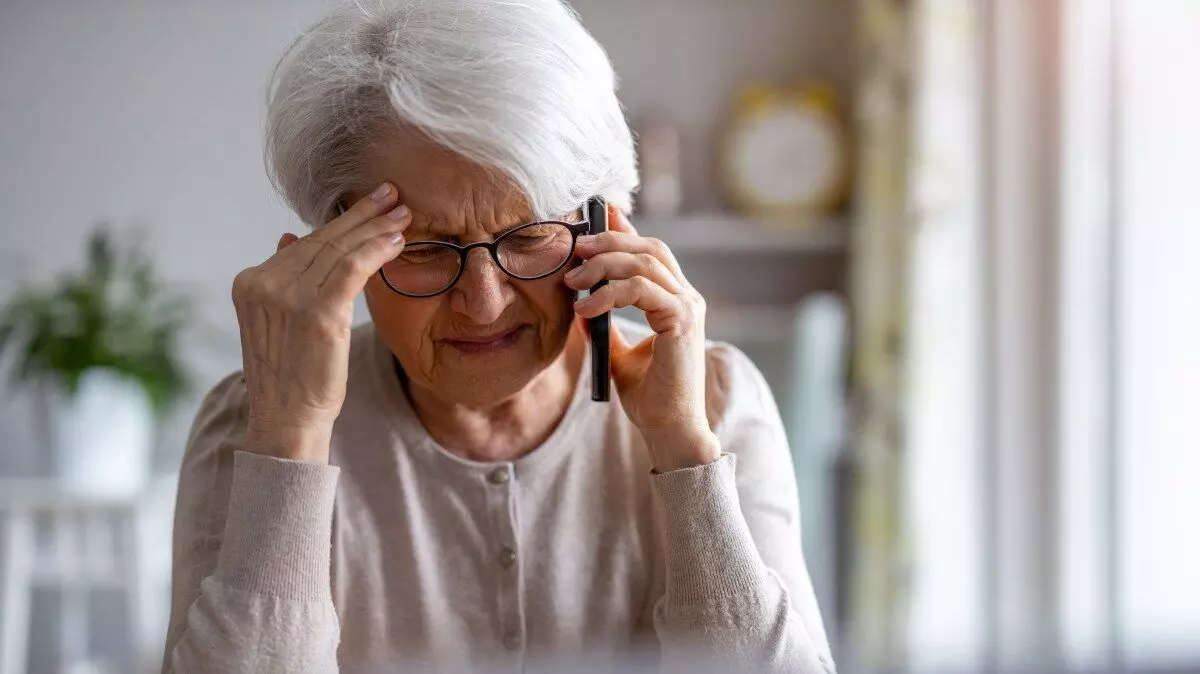Alzheimer’s cases surge in India, account for 70% of 8.8 million dementia patients
Alzheimer’s disease has seen a surge due to an ageing population and changing lifestyles, with the numbers expected to double by 2036
By - Newsmeter Network |
Hyderabad: As many as 8.8 million people in India are suffering from dementia and 70 per cent of these cases are of Alzheimer’s disease, making it a major public health concern in India.
Alzheimer’s disease has seen a surge due to an ageing population and changing lifestyles, with the numbers expected to double by 2036.
Elder population
India is projected to have over 180 million elders, further fuelling this demographic health challenge. The disease is prevalent in high numbers in Kerala, Maharashtra and Tamil Nadu. The states where there is a lot of challenge noted in terms of tackling the disease are Odisha, Jammu and Kashmir, Goa and Uttarakhand.
The disease imposes a profound emotional and financial strain on families, insidiously eroding a patient’s memory, reasoning and ability to perform daily tasks.
Dr Khushboo Hatekar, assistant professor of Neurology at Dr DY Patil Medical College, hospital and research centre at Pimpri, said, “Social stigma and lack of awareness exacerbate the challenge, pushing many cases into obscurity. Due to this reason, many of them are deprived of essential support. Urban centres are recording a high number of cases of dementia and Alzheimer’s. In rural areas, due to low awareness and lack of healthcare access, the disease is not detected. Goa and Uttarakhand are the two states where concerns have been raised for Alzheimer's patients.”
The rise of risk and underdiagnosis
According to Dr Kunal Bahrani, clinical director – neurology at Marengo Asia Hospitals, Faridabad, the steady rise in Alzheimer’s cases is attributed not only to the ageing demographic but also to urban lifestyle changes.
These include a sedentary routine, unhealthy diet, chronic stress and a lack of physical activity. Moreover, the increasing prevalence of chronic diseases like diabetes, hypertension and heart disease—now common in India—significantly heightens the risk.
Key risk factors include:
Age: People over 60 are most susceptible, with the risk increasing every decade.
Genetics: Those with a family history of Alzheimer’s have a higher likelihood.
Lifestyle: Poor diet, smoking, excessive alcohol, chronic stress and mental inactivity (lack of social engagement/mental stimulation).
Comorbidities: Chronic diseases like high blood pressure, high cholesterol and heart disease.
Despite the growing numbers, awareness regarding Alzheimer’s is still limited, leading to widespread underdiagnosis.
Cases are often mistaken for the normal symptoms of ageing or are simply missed due to social stigma. This is particularly true in rural areas, which face the double jeopardy of low awareness and poor access to specialist healthcare. A significant portion of cases go unrecognised, depriving patients of essential support.
Busting myths and spotting subtle signs
Dr Bahrani highlighted several common myths that hinder timely diagnosis and care:
Memory loss is just normal ageing.
Alzheimer’s is much more severe and progressive than common age-related memory lapses.
Only the elderly get Alzheimer’s.
A rare, more aggressive form called early-onset Alzheimer’s can affect people in their 40s or 50s.
Nothing much can be done once diagnosed.
While there is no cure, treatment and lifestyle changes can slow the disease’s progression and improve the quality of life.
It’s just forgetfulness.
The disease deeply affects a patient’s behaviour, judgment and overall daily life.
Early onset of Alzheimer’s
The doctor also noted that early-onset Alzheimer’s is often misdiagnosed in younger patients (40 to 60 years) because subtle symptoms like memory lapses, difficulty at work or problems managing daily tasks are frequently mistaken for stress, depression or burnout. He stressed that any noticeable memory problems or cognitive changes, even in someone under 60, require a crucial medical evaluation.
Early detection and modern therapies
The next 20 years will be critical for India to plan and allocate resources, train medical personnel and educate the masses about the prevention and management of Alzheimer’s.